Transforming science education through research-driven innovation
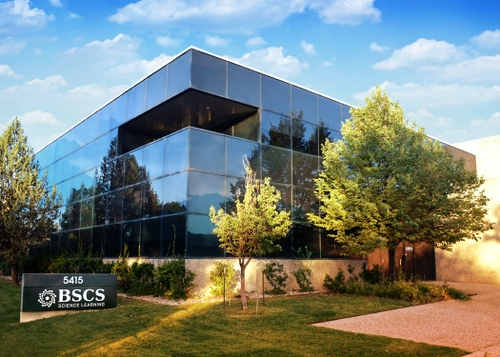
BSCS Science Learning Seminar Series
BSCS Science Learning is a place of learning, scholarship, and reflective practice. Dedicated to hearing from scholars, educators, scientists, designers, and other professionals, the BSCS Seminar Series brings distinguished speakers to share ideas and present their latest work to our community conversations.
We acknowledge and recognize the experts and colleagues in the broader STEM community who are volunteering to speak to our staff. More importantly, we'd like to share their talks with educators who are invested in their own professional growth.
Below you'll find information about our speakers and links to their talks.
Speakers
October 27, 2021
Melanie Peffer; University of Colorado Boulder

Topic: Biology Everywhere: Integrating experiences as biology education researcher and biology instructor to communicate biology to the general public
Abstract:
Where have you experienced biology today? Although we experience biology daily, many struggle to see the connection. Some don't feel like they are a science or biology person, or think they can't engage with biology, or view biology as simply a collection of abstract facts that don't matter outside of the classroom. This ultimately leads to low science literacy and hurts society as people either choose not to engage with major science issues like conservation, climate change, or public health, or fall victim to competing predatory information. So, what do we do?
The bedrock of my book, Biology Everywhere, is that when we present science through the lens of daily experiences, it becomes relatable and accessible. Viewing science as meaningful to our lives fires the imagination, sparks curiosity, and encourages learning. It is easier to feel like a science person and confidently engage with science. Rather than an abstract collection of facts, science becomes a dynamic and fascinating process we engage in and with every day.
In my seminar, I'll discuss the history of Biology Everywhere, from getting my doctorate in molecular biology, to crossing disciplines with a postdoctoral appointment in learning sciences, to my experiences teaching non-majors biology. I'll also give examples from Biology Everywhere about how I've incorporated the real-world in the classroom, including how to effectively build bridges between biology and other disciplines, such as the arts.
Speaker Bio:
Melanie has a B.S. and Ph.D. in molecular biology from the University of Pittsburgh and completed postdoctoral training in learning sciences at Georgia State University. She is affiliated with the University of Colorado Boulder as a research scientist in the Institute of Cognitive Science and a teaching assistant professor with the Health Professions Residential Academic Program where she teaches introductory biology courses. Her research is focused on how people learn biology, with an emphasis on teaching about the nature of science knowledge and how we can use educational technologies to assess students' understanding of science.
Melanie is the author of the best-selling book, Biology Everywhere: How the science of life matters to everyday life. Biology Everywhere is a journey through the science of life as told through our daily experiences. She is also the 2021 High Plains Library District Foundation's writer in residence. She will be spending her residency working on a children's spin off series of Biology Everywhere. The first book, Biology Everywhere: River Adventurers is due out in December 2021.
Recorded Talk:
Watch hereSeptember 29, 2021
Gregory Radick; University of Leeds
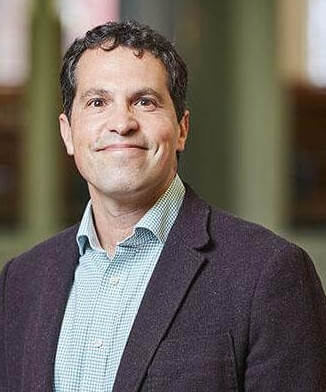
Topic: Genetics education for the real world
Abstract:
The traditional, start-with-Mendel introductory curriculum in genetics is, at its best, outstanding in helping students to learn to "think like a geneticist." But is that an appropriate goal for genetics education in the 21st century? In this talk, I want to make the case for a genetics curriculum which aims less at creating geneticists than at improving students' ability to cope well with the genetic information which increasingly surrounds them. I will dwell in particular on one attempt to "de-Mendelize" the genetics curriculum, putting much greater emphasis than is traditional on phenotypic variability and on the complex gene-gene and gene-environment causal interactions which bring about that variability. I will also discuss a BSCS Science Learning-Cornell project now underway to assess the impact on students of these alternative emphases.
Speaker Bio:
Gregory Radick is a Professor of History and Philosophy of Science at the University of Leeds. He has published widely on the history of biology and the human sciences after 1800, with particular emphases on Darwin and Darwinnpism; genetics and eugenics; and sciences of mind, language and behavior. He has also pursued more general questions about scientific knowledge, especially to do with the history-of-science counterfactuals (e.g.,"What would biology be like now if the Mendelians had not triumphed in the early 20th century?"). He currently serves as the co-Principal Investigator on the NSF-support project “Honoring the Complexity of Genetics: Exploring How Undergraduate Learning of Multifactorial Genetics Affects Belief in Genetic Determinism,” which builds on an earlier study on genetic determinism in the genetics curriculum. He is the author of The Simian Tongue: The Long Debate about Animal Language (awarded the 2010 Suzanne J. Levinson Prize of the History of Science Society for best book in the history of the life sciences and natural history) and the coeditor of The Cambridge Companion to Darwin.
Recorded Talk:
Watch hereAugust 25, 2021
Thomas M. Philip; University of California Berkeley
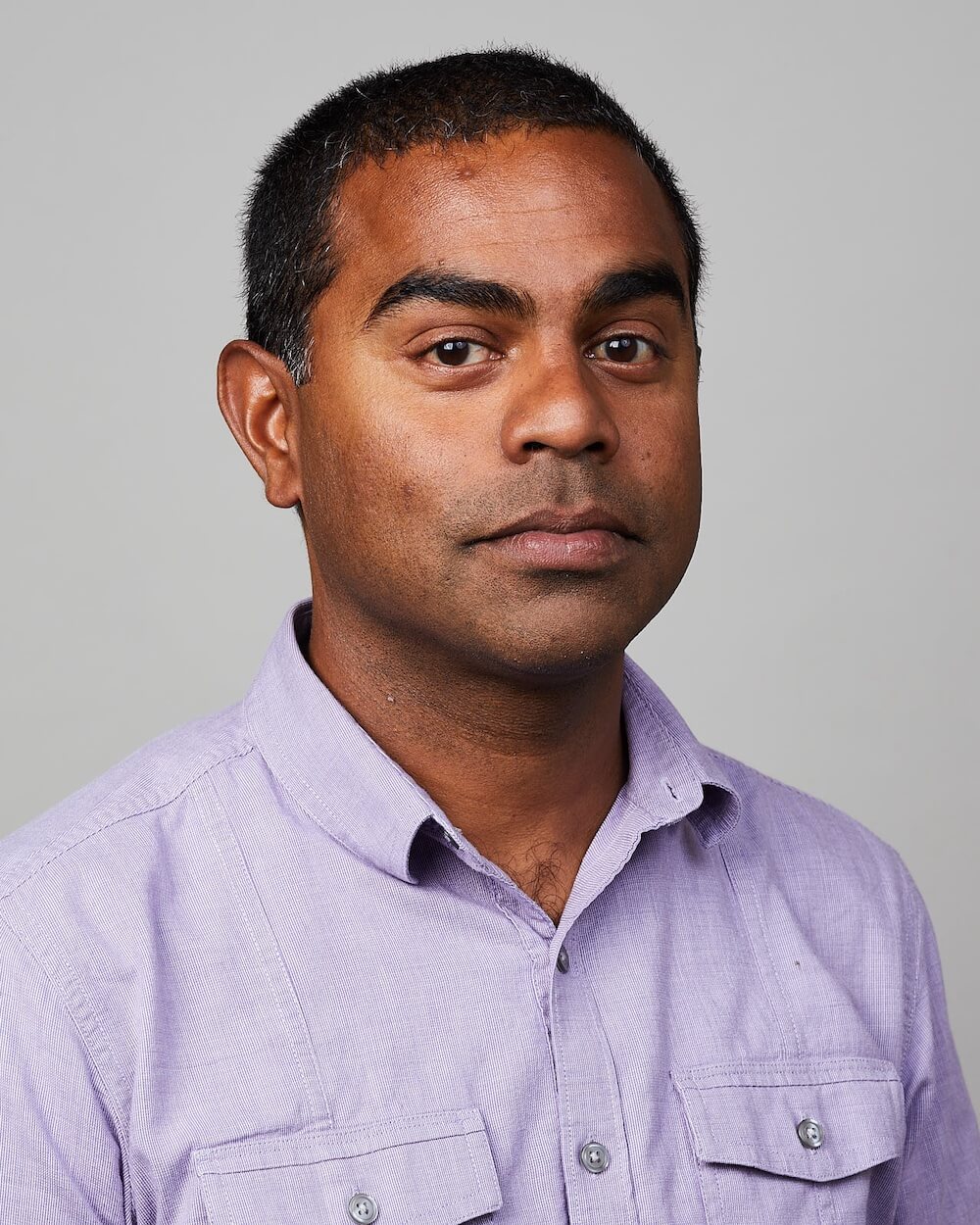
Topic: Learning as Entwined with Ideologies: Theoretical, Methodological, and Pedagogical Possibilities and Implications
Abstract:
In this talk, Thomas M. Philip will explore how ideologies, particularly racial ideologies, are intertwined with learning. Looking across multiple learning contexts, Philip will consider the pedagogical, theoretical, and methodological insights and possibilities when we attend to interaction and the local construction and contestation of ideologies.
Speaker Bio:
Thomas M. Philip is a Professor of Education at the University of California Berkeley. His research focuses on how teachers make sense of and address power and hierarchy in classrooms, schools, and society. His recent scholarship explores the possibilities and tensions with the use of artificial intelligence and digital learning technologies in classrooms. Philips received his Ph.D. in Cognition and Development and a B.S. in EECS from the University of California, Berkeley. His research has been recognized by multiple awards including the National Academy of Education/Spencer Postdoctoral Fellowship; the AERA Division C (Learning & Instruction) Jan Hawkins Award for Early Career Contributions to Humanistic Research and Scholarship in Learning Technologies; and the National Association for Multicultural Education's Research Award.
Recorded Talk:
Watch hereJuly 21, 2021
Alexis Patterson; University of California Davis
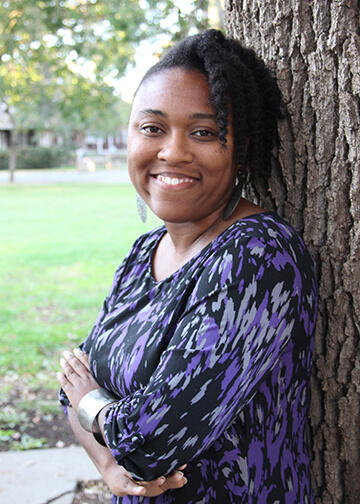
Abstract:
As the scientific and technological divide widens, access to quality science instruction has become a civil rights issue: those equipped with the knowledge and skill will remain caretakers of status and power. This inequality is especially salient for students in marginalized communities and schools where stereotypes fuel low expectations for academic achievement and success. For many students the classroom represents their earliest formal experience with both the content and process of science, placing science teachers in a unique and precarious position: getting students excited and engaged about science while simultaneously preparing the next generation of STEM professionals and scientifically literate citizens. We offer a model: (W)holistic Science Pedagogy (WSP). It is both a teacher- and student-centered approach of instruction to disrupt patterns and hierarchies. The WSP approach requires five commitments from the teacher: A commitment (1) to an ever-developing self-awareness, (2) to science and its practices, (3) to science as a transformative agent, (4) to their students' social emotional wellness, and (5) to restorative practices. This talk will introduce the five commitments and examine these commitments within the context of science teaching.
Speaker Bio:
Alexis Patterson Williams, PhD, is an associate professor at the University of California, Davis. Dr. Patterson Williams's research lies at the intersection of equity studies, social psychology, and science education. Her work explores 1) equity issues that arise from social hierarchies when students work together on group projects in science and 2) teacher development of practices that support equitable and robust interactions between students that can deconstruct implicit and explicit language and literacy hierarchies. Her recent project has led to the development of an educational framework, (W)holistic Science Pedagogy, with her colleague and sister scholar, Dr. Salina Gray.
Recorded Talk:
Watch hereJune 30, 2021
Saul Perlmutter; Professor of Physics, UC Berkeley
Senior Scientist, LBNL
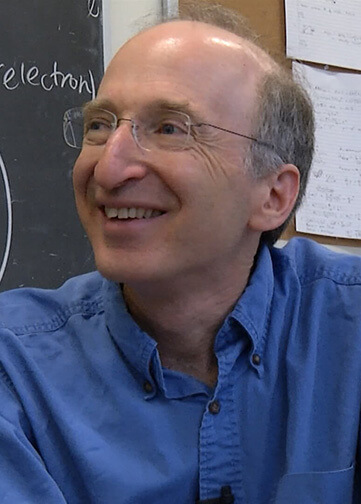
Topic: Science, Reality, and Credibility
Abstract:
There is a body of techniques and practices, a language and culture, that is usually implicitly taught by apprenticeship and osmosis to graduate students and postdocs in the sciences. This is the underpinning of an approach to building a credible sense of the “real world” that is shared by scientists, but not much used (or understood) by the rest of society. Equipping future generations with this scientific-style critical thinking could be one of our most reasonable defenses against confused thinking and misinformation, both major challenges to our democratic societies' ability to make deliberative decisions. Can we make these implicit concepts explicit, and teach them to scientists and non-scientists alike? Could this help our society address difficult issues such as are raised by the global environment and economics? And how could citizen scientists use these tools to help build sources of credibility on the web and in the news? This talk is intended to start a discussion.
Speaker Bio:
Saul Perlmutter is a 2011 Nobel Laureate, sharing the prize in physics for the discovery of the accelerating expansion of the universe. He is a professor of physics at the University of California, Berkeley and a senior scientist at Lawrence Berkeley National Laboratory, where he leads the international Supernova Cosmology Project, the Berkeley Institute for Data Science and the Berkeley Center for Cosmological Physics. His interest in scientific-style critical thinking for scientists and non-scientists alike led to Berkeley courses called Sense & Sensibility & Science and Physics & Music, which he has been teaching for more than a decade. An author of over 200 scientific publications, Perlmutter has also written popular articles and appeared in numerous PBS, Discovery Channel, and BBC documentaries. In addition to other awards and honors, he is a member of the National Academy of Sciences and the American Academy of Arts and Sciences and a fellow of the American Physical Society and the American Association for the Advancement of Science.
Recorded Talk:
Watch hereMay 26, 2021
Michael Menchaca; University of Hawai'i at Manoa
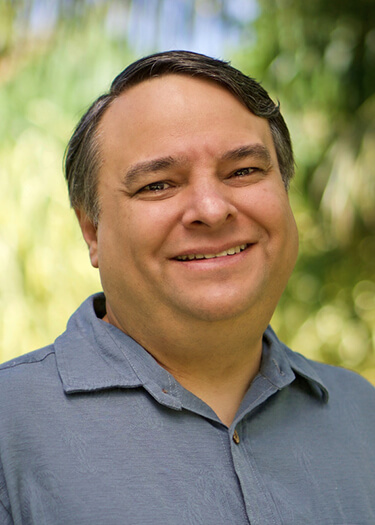
Topic: Post-Pandemic Education: Moving from Crisis Instruction to Optimal Teaching
Abstract:
Nearly a year out from official shut downs, significant teaching still occurs either completely online or in some combination. Even where spare, online delivery is evident and experts predict will continue to grow. Oft bearing the brunt of instructional blame, educators have been placed in the unenviable position of delivering crisis instruction without appropriate expertise or training. Educators truly do their best, learning while doing. How now do we move from this crisis mode to thoughtful planning and optimal delivery?
To begin to address the question, this presentation will focus on the following:
- Underpinning models for effective online and blended delivery
- Considerations for building community, both in class and out
- Considerations for formative and summative assessment
- Best practices for tools and strategies, including for professional development
The goal of the presentation is to provide an overview and begin a reflective dialogue about how ideas might best fit (or not) in your organization's particular situation. Optimal design, while best founded on effective modeling and practice, must also be mission-aligned to organizational goals and objectives. Thus, time will be set aside for questions and dialogue.
Speaker Bio:
Michael Menchaca is professor and chair in the Department of Learning Design and Technology at the University of Hawai‘i at Mānoa. He specializes in distance education and conducts research in e-learning, technology integration, social justice with technology, and complex learning environments. He has designed and implemented online programs for over 20 years. He currently serves as editor for the IAFOR Journal of Education: Technologies and Education. In his spare time, he enjoys spending time with his family, reading, and traveling, and vows to be traveling as soon as safely possible.
Recorded Talk:
Watch hereMay 19, 2021
Todd Campbell; University of Connecticut &
Okhee Lee; New York University
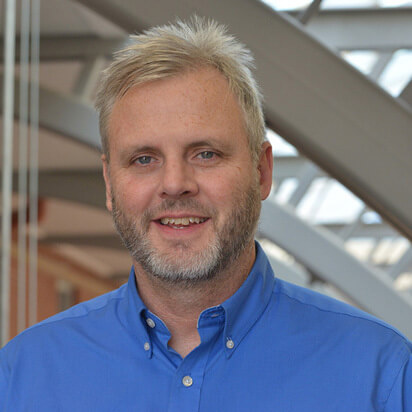
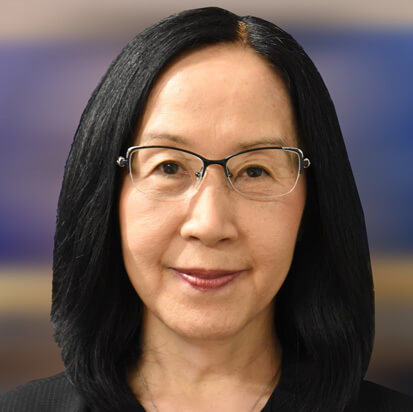
Topic: Teaching Science to Address Societally Pressing Problems: The COVID-19 Pandemic and Systemic Racism
Abstract:
The COVID-19 pandemic offers an unprecedented context to engage all students in societally pressing problems, while making visible the endemic nature of systemic racism that has led to disproportionate numbers of cases and deaths among racial and ethnic minority groups. We propose an instructional framework for STEM education with justice, by foregrounding justice and capitalizing on new advances in STEM disciplines to support justice-centered decisions and solutions to societally pressing problems. During the presentation, we will walk the participants through navigating data sources and share a sequence of science lessons to exemplify our instructional framework. We will conclude with a brief discussion of research questions as we continue to develop and refine our proposed instructional framework.
Speaker Bios:
Todd Campbell is the Department Head of Curriculum and Instruction and a Professor of Science Education in the Neag School of Education at the University of Connecticut. His research focuses on cultivating imaginative and equitable representations of STEM activity. This is accomplished in formal science learning environments through partnering with pre-service and in-service science teachers and leaders to collaboratively focus on supporting student use of modeling as an anchoring epistemic practice to reason about events that happen in the natural world.
Okhee Lee is a professor in the Steinhardt School of Culture, Education, and Human Development at New York University. Her research involves integrating science, language, and computational thinking with a focus on English learners/multilingual learners. She was a member of the NGSS writing team and served as leader for the NGSS Diversity and Equity Team. She was also a member of the Steering Committee for the Understanding Language Initiative at Stanford University.
Recorded Talk:
Watch hereApril 28, 2021
Ann Edwards; WestEd
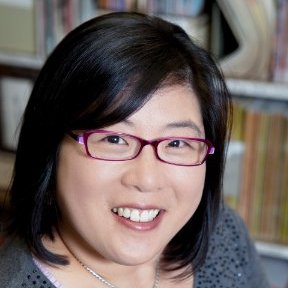
Topic: Advancing Quality Teaching: Professional Development in a Networked Improvement Community of Postsecondary Math Educators
Abstract:
Mathematics is the primary obstacle to college completion in US institutions of higher education. Over 60% of incoming community college students are required to take at least one remedial math course before they can enroll in college-credit courses; however, 80% of those students do not complete any college-level math course within 3 years, and are therefore unable to obtain a degree or credential or to transfer. In comprehensive 4-year institutions, approximately 20% of incoming students are placed into remedial math and about 60% do not complete a college-level math course within 2 years, significantly decreasing their likelihood of graduation. The Carnegie Math Pathways is a networked improvement community [NIC] of over 90 IHE's aimed at dramatically improving these outcomes. A NIC is a form of social organization that brings the tools and processes of improvement science together with the learning structures of networks to enable a community of stakeholders to achieve a shared aim. The approach is explicitly designed to accelerate learning-by-doing and knowledge sharing in order not only to develop evidence-based solutions but also generate the know-how needed for those ideas to be effectively implemented at scale across contexts. This presentation will focus on Advancing Quality Teaching, an NSF-funded project that aimed to use networked improvement methods to develop and continuously improve professional learning opportunities for instructors in the Carnegie Math Pathways NIC. I will illustrate how we applied improvement methods to the problem of improving instructional practice and course outcomes, highlighting challenges we faced in the design and implementation of professional learning at scale as well as lessons learned about doing networked improvement in the messy real world.
Speaker Bio:
Ann R. Edwards is a Senior Research Associate in Mathematics at WestEd. Her work focuses in mathematics education, including research in the areas of mathematics cognition, instruction, curriculum, and teacher learning. She has also designed curricula and professional development at all grade levels K-16 as well as adult education. She brings a deep commitment to addressing issues of equity that shape mathematics teaching and learning. She is currently the Director of Research and Implementation for the Carnegie Math Pathways initiative, a network of faculty members, researchers, designers, students, and content experts committed to increasing student success in developmental mathematics and overall college and career outcomes. She is also the PI of the Scaling Up through Networked Improvement project (NSF), which studies the use of quality improvement tools in the support of institutional implementation of educational innovation at scale, and was co-PI of the Advancing Quality Teaching project (NSF), focused on developing professional development at scale for a national network of college mathematics faculty engaged in reform of entry level mathematics courses. She is also currently the co-PI of an IES-funded evaluation study of community college corequisite mathematics courses and a content lead for the NAEP Mathematics Framework revision. She has published in numerous journals and books including the NADE Digest, Journal of Teacher Education, Journal for Research in Mathematics Education, Teachers College Record, and the Handbook of Research on Learning and Instruction. Edwards received a BA in applied mathematics from Harvard University; and an MA and PhD from the University of California, Berkeley in education in mathematics, science and technology.
Recorded Talk:
Watch hereApril 21, 2021
Jessica Parker; The Exploratorium &
Julie Yu; The Exploratorium
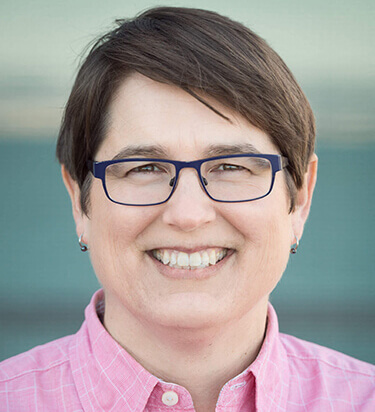
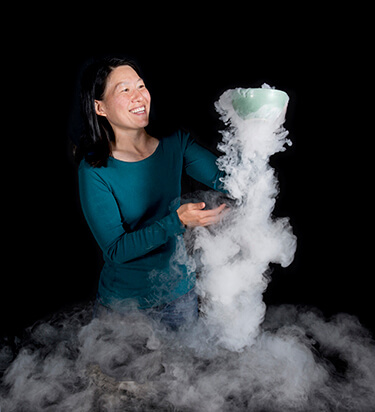
Topic: The Exploratorium's Teacher Institute: Providing a Professional Home for Secondary Science Teachers and Leaders
Abstract:
The Exploratorium has been a professional home for science educators for over 40 years. Jessica Parker, the Director of Teaching and Learning, and Julie Yu, a Senior Scientist, will discuss the many ways the Teacher Institute supports secondary science teachers and leaders through sustained professional learning, educator networks, and free, teacher-tested resources. Our approach is designed around phenomena-based experiences that invite educators to engage as learners - to develop deeper science content understanding by learning in a way they are being asked to teach - and reflect on pedagogical moves modeled by facilitators. We will share program models, research projects, and online and in-person approaches that make the Exploratorium uniquely positioned to support secondary science teachers and leaders.
Speaker Bios:
Jessica Parker is the Director of Teaching and Learning at the Exploratorium. She manages a K-12 team made up of veteran science educators, PhD scientists, and educational researchers who support over 1300 teachers and leaders annually across five different programs. With 12+ years teaching in higher education and secondary classrooms, Jessica has a passion for STEM education, extensive experience in supporting professional learning networks, and expertise in digital media and learning and maker education. She is the author of Teaching Tech-Savvy Kids: Bringing Digital Media into the Classroom. Jessica completed her undergraduate and graduate work at the University of California, Berkeley; she has a BA in Mass Communication and a MA and a PhD in Education.
Julie Yu is a Senior Scientist at the Exploratorium, San Francisco's museum of science, art, and human perception. She provides science content support throughout the museum and works with teachers to bring inquiry-based science learning to their classrooms. With a broad interest in all sciences, she has a PhD in chemical engineering from the University of California, Berkeley, with a minor in molecular and cell biology. Her work and research have spanned from viruses and stem cells to teacher learning and inquiry to concrete and cement. This has led to a myriad of opportunities, including teaching science to Tibetan monks and nuns, launching an explosion of 2000 ping pong balls, and acquiring a US patent. She is currently captivated with thinking about food as a way of bringing together key interests of science, culture, identity, and eating.
Recorded Talk:
Watch hereMarch 31, 2021
Jill Wertheim; Stanford University
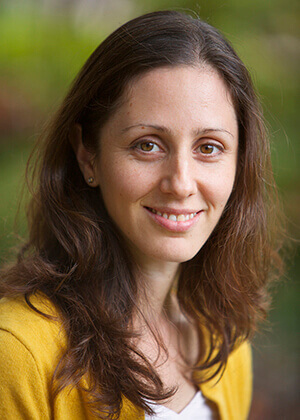
Topic: Building Capacity for NGSS Implementation using Performance Assessments
Abstract:
Assessments can be a powerful lever for advancing priorities in science education including supporting 3-dimensional reasoning, addressing inequities in access and outcomes, and building student agency. Yet, few educators have access to assessments designed for these purposes, limiting their ability to inform and improve their progress toward their goals. In this talk, I will discuss how the Stanford NGSS Assessment Project (SNAP) is using a blend of synchronous and asynchronous online courses, local communities of practice, and direct support to build capacity for the principled design and use of science performance assessments tailored to the specific context in which they will be used. Insights from case studies that are currently underway in large urban districts in California will illustrate ways districts are leveraging the potential of these courses to be implemented at scale to support district-wide reforms.
Speaker Bio:
Jill Wertheim is the Director of the Stanford NGSS Assessment Project (SNAP) at the Stanford Center for Assessment, Learning, and Equity (SCALE). Dr. Wertheim's work focuses on the design, development, and use of performance assessments as part of a balanced system of assessment in classrooms, schools, districts, and states. Prior to coming to Stanford, Dr. Wertheim studied how assessments can be used to uncover students' ideas about earth science at AAAS Project 2061 and expanded this work into geography education at National Geographic. She holds a PhD in the Geological Sciences from University of California, Santa Barbara and a BA in Geology and Music from Middlebury College.
Recorded Talk:
Watch hereMarch 17, 2021
Batya Friedman; University of Washington &
Nick Logler; University of Washington
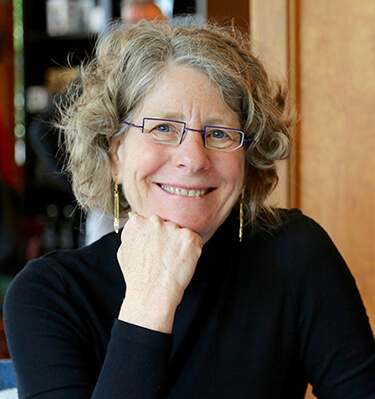
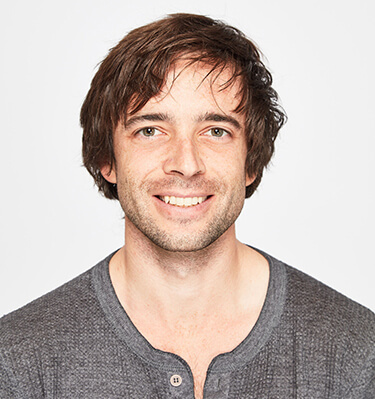
Topic: Value Sensitive Design: Engaging Moral and Technical Imaginations
Abstract:
Tools and technologies are fundamental to the human condition. They do no less than create and structure the conditions in which we live, express ourselves, enact society, and experience what it means to be human. They are also the result of our moral and technical imaginations. Yet, with our limited view, it is not at all obvious how to design tools and technology so that they are more likely to support the actions, relationships, institutions, and experiences that human beings care deeply about – a life and society of human flourishing. Value Sensitive Design (VSD) was developed as an approach to address this challenge from within technical design processes. In this talk, we will provide an introduction to Value Sensitive Design, foregrounding human values in the technical design process. Our remarks will situate VSD within a broader discourse on sociotechnical systems and present VSD's core theoretical constructs. Then we will introduce some methods from VSD, along the way demonstrating two methods – Envisioning Cards and value scenarios – in the context of a design activity. Next we'll discuss some current examples of applying VSD, first to the design of robots for healthcare and then to the invisible materiality of information technology. In doing so, we will explore technology trends at the cusp of the 21st century from a VSD perspective. Thinking longer-term and systemically, we will bring forward a range of potential challenges and design opportunities in light of these trends. Our comments will engage individual lives, society writ large, what it means to be human, the planet and beyond.
Speaker Bios:
Batya Friedman is Professor in the Information School and holds adjunct appointments in the Allen School of Computer Science & Engineering, and the Department of Human Centered Design and Engineering at the University of Washington. She co-directs the Value Sensitive Design Lab and the UW Tech Policy Lab. Batya pioneered value sensitive design (VSD), an approach to account for human values in the design of information systems. First developed in human-computer interaction, VSD has since been used in architecture, civil engineering, computer security, energy, human-robotic interaction, information management, land use and transportation, legal theory, and moral philosophy. She is currently working on multi-lifespan design and on methods for envisioning – imagining new ideas for leveraging information systems to shape our futures. Voices from the Rwanda Tribunal is a first project in this multi-lifespan design research program. Her 2019 book co-authored with David Hendry provides a comprehensive account of value sensitive design and is titled Value Sensitive Design: Shaping Technology with Moral Imagination. In 2012 Batya received the ACM-SIGCHI Social Impact Award and the University Faculty Lecturer award at the University of Washington, in 2019 was inducted into the CHI Academy, and in 2020 received an honorary doctorate from Delft University of Technology. She received both her B.A. and Ph.D. from the University of California at Berkeley.
Nick Logler is a PhD Candidate in the Information School at the University of Washington. He is a research assistant in the Value Sensitive Design Lab and the Tech Policy Lab. His work explores our relationship with everyday technologies and materials. He has asked undergraduates, children, and families to disassemble desktop printers to investigate how we expand our understanding of what is and can be a material, how context shapes our understanding of material systems, and how these understandings shape how we live in a material world. Prior to joining the PhD program at the Information School Nick helped start and run a makerspace in Newport, Rhode Island that works with young people, teachers, and school systems. He received his B.A. from Loyola University Maryland, and his M.A. from American in Washington, D.C.
Recorded Talk:
Watch hereFebruary 3, 2021
Heidi Carlone; The University of North Carolina at Greensboro

Topic: Studying and designing for diverse youths' STEM-linked identity work
Abstract:
I am passionate about studying, and now designing, science, technology, and engineering (STE) learning settings that have the potential to redress public school's practices of epistemic injustice stemming from racism, sexism, ableism, and classism. Minoritized youth, especially those in schools that serve high populations of students living in poverty, are not given equal access to be knowledge creators (epistemic agents) in classrooms. This situation often worsens as students move through the K-12 public school system. After years of studying the culture of K-12 science and engineering learning settings and the identities that are celebrated and marginalized within them, my work is shifting to design-based research approaches. I have begun to co-design STE learning settings to cultivate diverse youths' disciplinary-linked identity work, and I also co-created a network to support elementary teachers who teach in schools serving high populations of minoritized youth and youth whose families are socioeconomically disadvantaged (STEM Teacher Leader Collaborative). In this talk, I discuss lessons learned from my studies of culture and youths' identity and how I have applied those lessons to design for youths' disciplinary-linked identities. My move to designing and studying for identity work represents what I hope will be a shift for our entire field of science education; a move that puts us closer to what Bent Flyvbjerg (2001) calls “social science that matters.”
Speaker Bio:
Dr. Heidi Carlone, Hooks Distinguished Professor of STEM Education at University of North Carolina Greensboro, works to make science and engineering (STEM) pathways more accessible and equitable for historically underserved and underrepresented populations. Three questions drive her work: (1) How can innovative K-12 instruction cultivate STEM identities for diverse youth? (2) How can we enrich K-12 diverse youths' STEM learning ecologies (support systems) in sustainable ways? (3) How can we design professional learning networks to support, nurture, and celebrate rigorous and equitable STEM teaching and retain excellent teachers? She publishes and presents her work in national and international venues and has earned over $5 million dollars in funding from local and national foundations. She has received a number of awards in her academic career including: The UNCG Alumni Teaching Excellence Award, the UNCG School of Education Teaching Award, the Early Career Research Award from the National Association for Research in Science Teaching, the Early Career Development Award (CAREER) from the National Science Foundation, and Sallie Mae First Year Teacher of the Year in Wake County Schools.